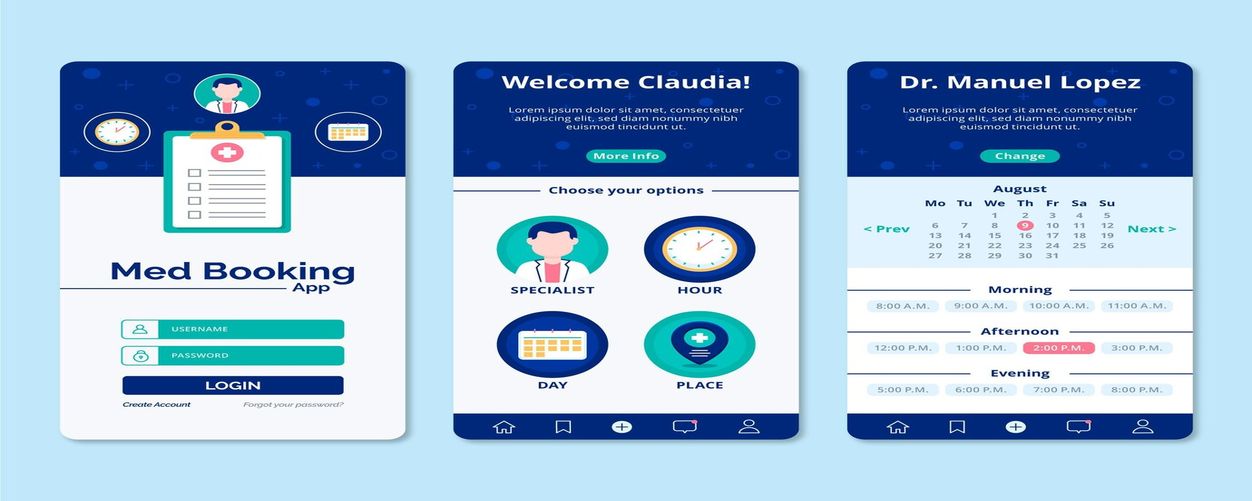Healthcare apps are becoming increasingly popular in the digital age. They offer patients an easy and convenient way to access medical information, communicate with their doctors, and manage their health. However, building a healthcare app is not as simple as building any other app. In the United States, healthcare apps must comply with the Health Insurance Portability and Accountability Act (HIPAA). HIPAA is a federal law that sets standards for protecting the privacy and security of patient’s personal health information. In this article, we’ll discuss how to build a HIPAA-compliant healthcare app.
Understand HIPAA Requirements
Before you begin building your healthcare app, it’s important to understand the requirements of HIPAA. HIPAA requires medical professionals to ensure the confidentiality, integrity, and availability of electronically protected health information (ePHI). This includes healthcare suppliers, insurance companies, and clearinghouses. However, the HIPAA regulations also apply to business associates, which includes anyone who performs certain functions or services on behalf of a covered entity.
Identify the ePHI Collected
The next step is to identify the ePHI that your app will collect. This includes any information that can be used to identify a patient, such as their name, address, date of birth, and medical information. You’ll need to identify what data you need to collect to provide the services offered by your healthcare app.
Conduct a Risk Analysis
Once you’ve identified the ePHI that your app will collect, you’ll need to conduct a risk analysis. This is a thorough assessment of the potential risks and vulnerabilities associated with collecting, storing, and transmitting ePHI. The risk analysis should identify potential threats to the security of ePHI, such as hacking, data breaches, and unauthorized access.
Implement Appropriate Technical and Administrative Safeguards
Based on the risk analysis, you’ll need to implement appropriate technical and administrative safeguards to protect the ePHI. Technical safeguards include measures such as encryption, firewalls, and access controls to prevent unauthorized access to ePHI. Administrative safeguards include policies and procedures, such as training for employees, disaster recovery plans, and security incident response plans.
Obtain Written Authorization from Patients
HIPAA requires Medical professionals and concerned parties to obtain written authorization from patients before using or disclosing their ePHI for purposes other than treatment, payment, or healthcare operations. If your healthcare app will use or disclose ePHI for any other purpose, you’ll need to obtain written authorization from the patient.
Enter into a Business Associate Agreement
If your healthcare app is built by a business associate with a medical professional, you’ll need to enter into a Business Associate Agreement (BAA). The BAA is a legal contract between the business associate and the medical professional that establishes the terms and conditions under which the business associate may use or disclose ePHI.
Train Your Workforce
HIPAA requires medical professionals to train their workforce on the policies and procedures for protecting ePHI. If your healthcare app has employees, contractors, or volunteers, you’ll need to ensure that they are trained on HIPAA requirements and the policies and procedures for protecting ePHI.
Conduct Regular Audits
Finally, it’s important to conduct regular audits to ensure that your healthcare app is complying with HIPAA requirements. Audits should include a review of policies and procedures, technical safeguards, and administrative safeguards. Any issues or deficiencies identified during the audit should be addressed promptly.
Conclusion
Building a HIPAA-compliant healthcare app requires a thorough understanding of HIPAA requirements, a risk analysis, and the implementation of appropriate technical and administrative safeguards. Covered entities must obtain written authorization from patients and enter into a Business Associate Agreement if they are a business associate of a covered entity. Regular audits are necessary to ensure ongoing compliance with HIPAA.
Image by pikisuperstar on Freepik
ALSO READ: How to Succeed in Enterprise Mobile Application Development in 2023?
More Blogs You May Like
- Ecommerce Website Development Company in USA
- Transforming the Oil and Gas Industry: The Power of Mobile Apps
- Explore the Essentials of 3D Game Development: A Complete Guide
- 5 Tips to Improve Your Investor Relations Website
- Benefits of Using Best Mobile Tracker Applications for Businesses
- Top iPhone App Development Companies in India
- New Trends in Digital Marketing 2024
- Why Ongoing Education is Critical in Full-Stack Development
- How Can Small Businesses Develop a WordPress Website Effectively?
- Why Is Digital Marketing Important For Small Businesses?


